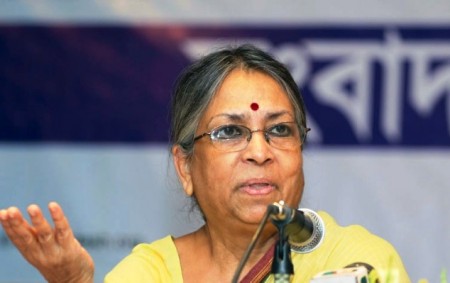Noted human rights activist Sultana Kamal has said the spirit of the Liberation War is getting tarnished as the people of Bangladesh are fearing to talk.
She made the statement while addressing a seminar on “The State of Press Freedom in Bangladesh Challenges and Way Forward” at CIRDAP auditorium in Dhaka on Tuesday morning.
She said: “We cannot deny that people are fearing to talk. It is the reality. Then question comes why did we fight in the Liberation War? One of the main goals of our liberation war was freedom of expression, freedom of thought. If I have to live in fear and fear to talk then the spirit of the Liberation War will be hampered.”
Sultana said democracy and freedom are closely interlinked. “Both should be ensure for building a prosperous society. If we prioritise, then the society or state will slip. Both should move hand in hand.”
Sultana, former advisor to the Caretaker Government, said: “The government will not do everything. As a citizen, we also have be active and ensure our rights.”
AJM Shafiul Alam Bhuiyan presented the keynote paper styled “Fostering Freedom of Expression in Bangladesh”.
He said the section 57 of the ICT has potential to restrain freedom of expression. “It should either be deleted or amended. If it is deleted, the CrPC needs to be updated to deal with crimes committed by using the social media.”
He also said: “It can be amended with the inclusion of clear definitions of the offences mentioned and by assigning punishments according to the magnitude of the crimes. And, the relevant court should be authorised to decide whether an accused will get bail or not.”
Noted journalist Syed Badrul Ahsan said differences between constructive and destructive criticism should be understood very well.
Mentioning that article 57, ruling party interference and other issues as barriers of freedom of expression, he said: “Very often media houses impose self censorship which is also harmful for freedom of expression.”
Sultana also said: “Bangladesh is probably the only country in the world where there is two forces—pro-liberation and anti-liberation forces. It is because history has intervened.”
She also said democracy, sense of responsibility, accountability and answerability—all are interlinked for freedom of expression.
Source: Dhaka Tribune










